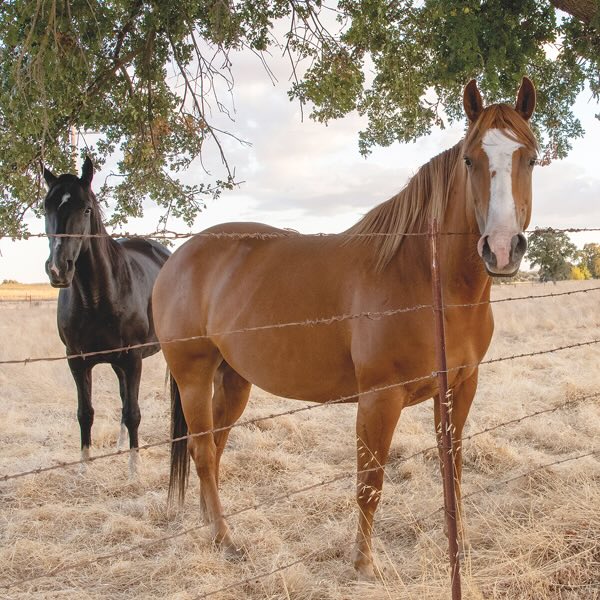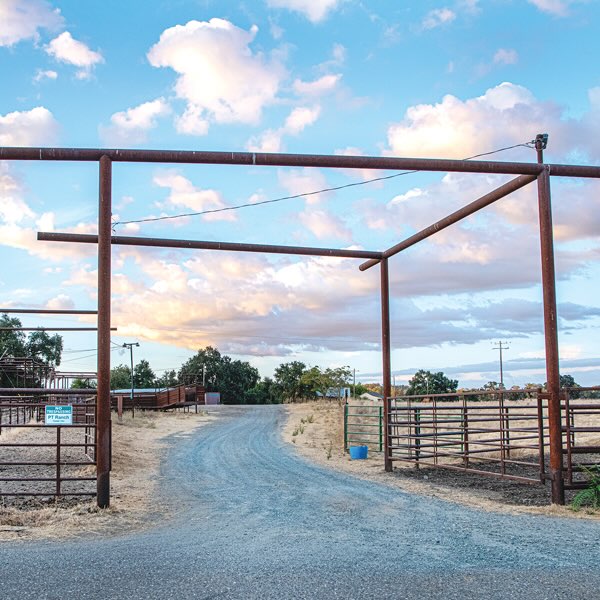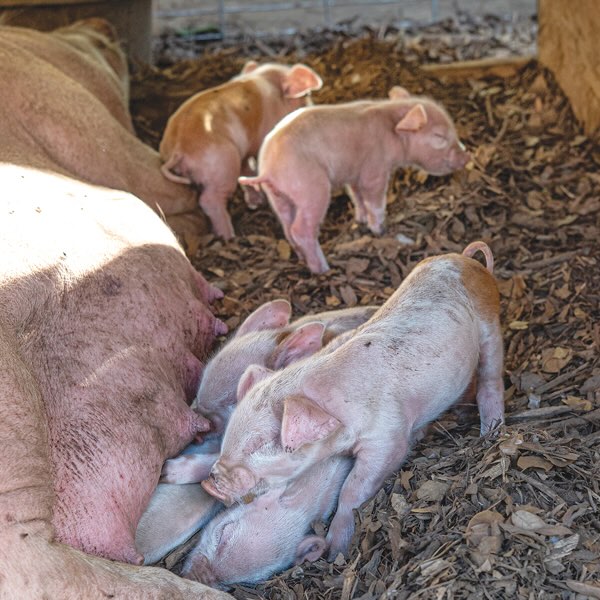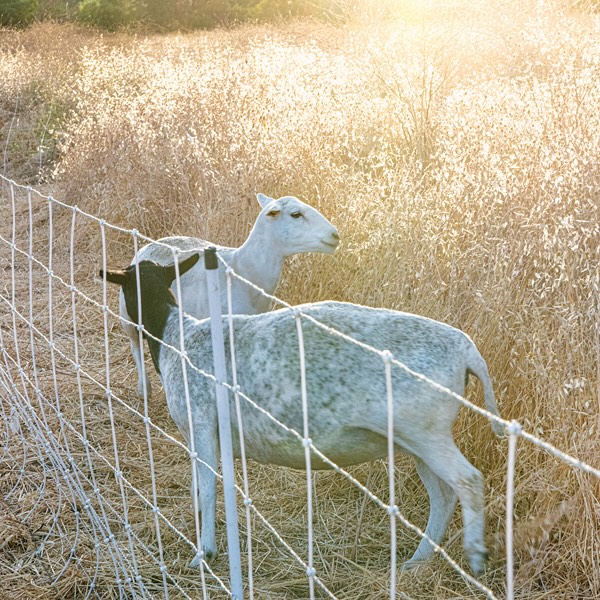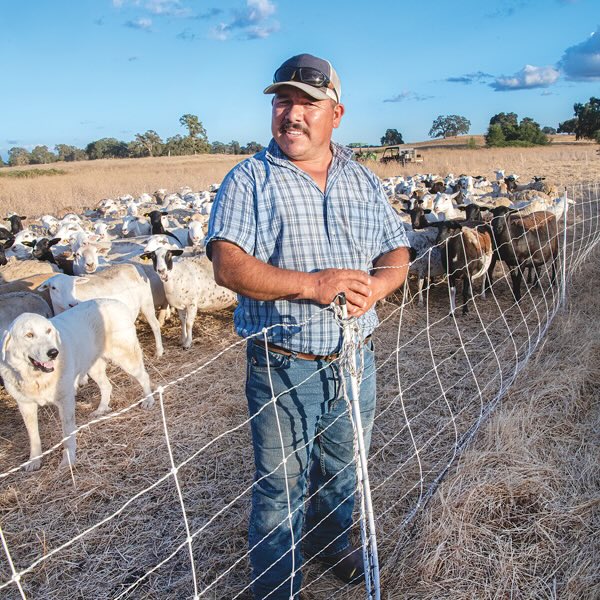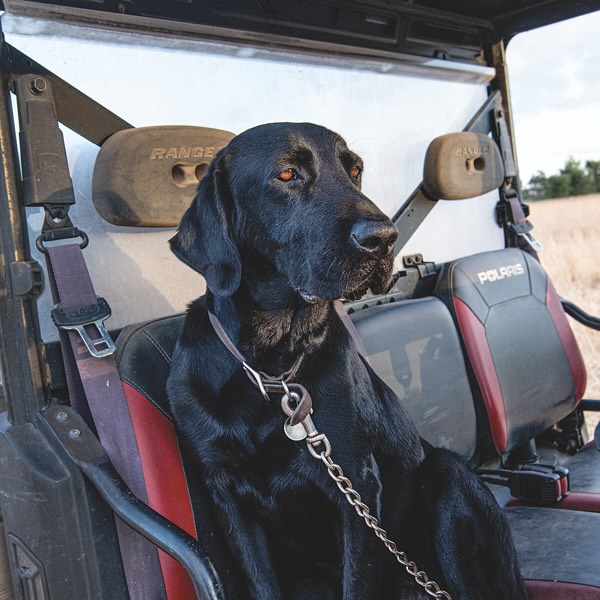Dirty Job
Novice ranchers build new life with old soil
By Gabrielle Myers
October 2025
A productive ranch, like a sustaining farm, starts with dirt. At PT Ranch in Ione, the Taylor family practices regenerative agriculture, which restores and revitalizes the ecosystem by caring for the soil.
Emily Taylor’s father bought the ranch east of Elk Grove in the 1950s. After a career as an interior designer in San Francisco, Emily, husband Ned and daughter Molly took over the ranch. They changed the way PT Ranch operated.
Gone were chemicals and fertilizers. In their place came regenerative fields, ecologically balanced pastures to feed sheep, pigs, chickens and turkeys.
The ranch participates in an ecological verification program, which Molly Taylor describes as “a way of monitoring your property each year in terms of soil, health, biodiversity and other sort of like indicators of ecosystem function.”
The family plants nitrogen-building seed mixes. No-till pasture management follows.
With rotational grazing, animals visit pastures in a sequence that considers pasture productivity and the feeding desires of each animal. The process enriches the soil through mixed manures.
Molly explains, “One flock of sheep, one herd of cattle, one drift of hogs rotate around the property according to a grazing plan, which is designed to give the pastures the rest they need to be healthy.”
Along the way, the animals enjoy different pastures and increased vigor.
Taylor animals are fed an organic mix from Modesto Milling, along with grasses, acorns, weeds, grains, worms and insects found in the pastures. The ranch isn’t certified organic but follows organic practices. (Many farms avoid the organic certification process due to the costs involved.)
PT Ranch conserves water with irrigation efficiency. Molly says, “We used to irrigate all of our fields through these unlined open ditches, literally in dirt ditches that would carry water, which you can imagine is incredibly inefficient, both from a water standpoint and from an energy standpoint, because you’re pushing water through a dirt canal.”
After receiving a grant, the family purchased an electric pump and pipes for the ditches, reducing water waste.
Restoring soil biodiversity wasn’t easy. The family planted a diverse range of trees and perennials that serve as “wildlife buffers and pollinator habitats,” Molly says.
Perennials make pastures more sustainable and resilient. Wildlife buffers—trees, bushes and plants—protect wildlife from entering ag areas.
Now there’s space for bees and hummingbirds. They increase the ranch’s productivity and ensure new plants develop.
Summer into the fall, PT Ranch raises turkeys. Customers can order for Thanksgiving and pick up their orders at the ranch’s fall festival, usually the Saturday before the holiday.
PT Ranch offers quarter, half or whole hogs and whole turkeys, plus cuts of pork, lamb, chicken, seasonal vegetables and olive oil pressed from family trees. PT Ranch meat is available at Corti Brothers and Magpie Cafe. Visit ptranch.co.
Gabrielle Myers can be reached at gabriellemyers11@gmail.com. Her book of poetry, “Break Self: Feed,” is available for $20.99 from fishinglinepress.com. Her new book, “Points in the Network,” has a mid-October publication date. Follow us on Facebook and Instagram: @insidesacramento.




